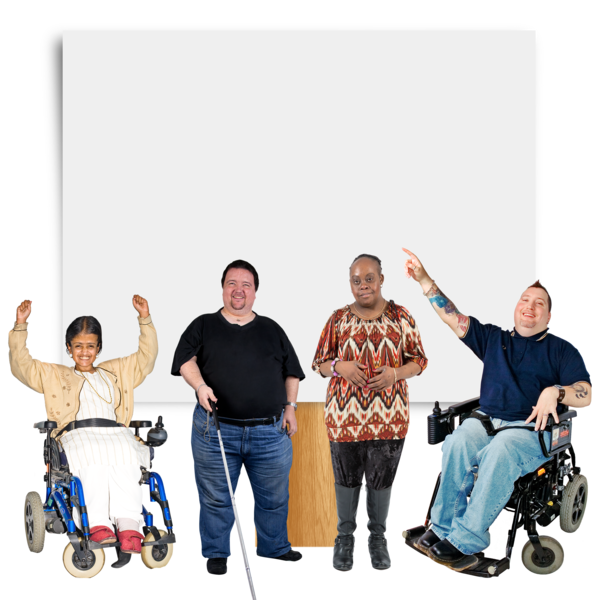In 2014 we had a one-day training session on
learning disability
 A learning disability is to do with the way someone's brain works. It makes it harder for someone to learn, understand or do things.
for all staff in the hospital who wanted to be 'learning disability champions'. The session was run and facilitated by people with a learning disability, and it was the best training I've ever had - it was fantastic!
A learning disability is to do with the way someone's brain works. It makes it harder for someone to learn, understand or do things.
for all staff in the hospital who wanted to be 'learning disability champions'. The session was run and facilitated by people with a learning disability, and it was the best training I've ever had - it was fantastic!
The training showed us the importance of support people with a learning disability to make decisions and do things for themselves.
Previously, my colleagues and I may have lacked full understanding of the needs of people with a learning disability. This could have led to assumptions being made about people's abilities. So our discussions about their individual needs and involvements in decision making may not have been fully person-centred.
The training made me rethink how I communicate - with all patients, not just patients with a learning disability.
I began exploring other communication tools, and now I am much more confident in communicating in more creative ways than I would have before.
Recently, a man with a mild learning disability came into hospital. Using my new skills and experience, I asked him what support he needed. I worked with the team to make sure that he got the right support and was involved in all decisions about his care.
We created an
easy read
 Easy Read is a way of making written information easier to understand. Pictures are usually added next to the writing.
guide on what to do if there were any issues with his health condition or treatment. He found this so useful, we are now going to use it as a template for other patients.
Easy Read is a way of making written information easier to understand. Pictures are usually added next to the writing.
guide on what to do if there were any issues with his health condition or treatment. He found this so useful, we are now going to use it as a template for other patients.
All healthcare professionals need to be aware that a one-size-fits-all approach does not work for patients with a learning disability. The key is to find out what they need to communicate, and who else they might want or need to be involved, then you can give them the same standard of care you give anyone else - in a way that works for them.
You can support Treat Me Well by signing up to receive information, resources and stories.
Find out more
Visit the Treat Me Well homepage to find out more about the
campaign
 A campaign is when people work together to try to change something.
and how you can get involved.
A campaign is when people work together to try to change something.
and how you can get involved.
